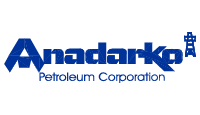Automation and its Importance
What is process automation, and why is it so important?
To answer this question, think of your engineering process like a human body. In the body, each part has a clear function, but all the parts depend on each other.
To paint the picture in full, let’s think about all the disciplines involved in a process engineering project. Say a company wants to build some type of a processing plant (e.g., oil or gas, food, chemicals, paper). In our “human body” analogy, the seven main disciplines involved in completing that project function like this:
- Process - This group provides the blueprint for the plant’s circulatory and digestive systems. It must provide the ins and outs, and interconnects piping while keeping capacity in mind.
- Structural - This discipline calculates the style and strength of the infrastructure for the plant — the skeleton.
- Instrumentation and controls - This group defines the type and quantity of sensors and end-devices used to gather a variety of data and monitor the environment, much like our senses (sight, hearing, taste, touch, smell, and pain receptors).
- Electrical - This team plans the electric circuitry, or nervous system, for the plant.
- Mechanical - This discipline defines the media that will actually achieve the capacity and functions declared by the process group, much like our body’s organs (heart, stomach, muscles, and ligaments) support the operations of the body.
- Civil - This group is responsible for keeping the skids or equipment designed by other disciplines in their place throughout the plant life-cycle, much like the skin layers of a human body hold our systems in place.
- Automation - This group designs the systems that tie everything together and enable all the parts to work together and behave specifically under certain conditions — the brain of our operation.
Unfortunately, even though automation is the guiding system for every other part, it’s often the last system to be designed and the most neglected.
After all, without an intelligent brain, the system will not be as self-sufficient as it should be. The resulting inefficiencies will have a domino-effect on the entire system, creating inefficiency in production, higher maintenance costs, and lower profits.
I’ve been glad to see that recently, automation has begun to receive greater attention from the clients we work with at Industrial CSE. They are realizing that when they invest in intelligent systems, the result is a vastly improved operation for their companies.
The most important step in your engineering project is to hire the right company to complete the automation portion of the system. After all, a system is only as smart as its programmer. Industrial CSE proudly provides complete engineering packages including automation & controls solutions. For best results on your projects, contact the experts at Industrial CSE online, by phone at 1-866-ASK-ICSE, or via email at Contact@industrialcse.com.















